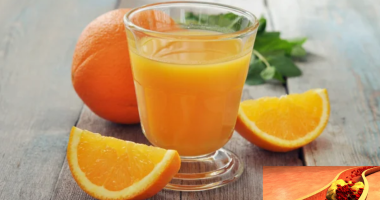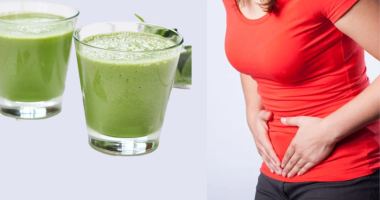Things To Do After Eating High Cholesterol Foods And What To Avoid – High-cholesterol foods are known to increase the risk of heart diseases, strokes, and other health complications. Although it is important to keep an eye on what we eat, it is also important to be aware of what to do and avoid after consuming high-cholesterol foods. In this article, we will discuss important things to do and avoid after eating high-cholesterol foods, to help you maintain a healthy lifestyle.
Understanding High Cholesterol Foods
High cholesterol foods are foods that contain high levels of saturated and trans fats. These foods include red meat, full-fat dairy products, processed meats, fried foods, and baked goods. When we consume these foods, they increase the levels of bad cholesterol in our bloodstream, leading to a higher risk of heart diseases and other health complications.
Why You Should Care
High cholesterol is one of the leading causes of heart diseases, strokes, and other health complications. When left unchecked, high cholesterol levels can lead to the formation of plaques in the arteries, leading to a higher risk of heart attacks and strokes. Therefore, it is important to be mindful of what we eat and how we manage our cholesterol levels.
What Happens When You Eat High Cholesterol Foods
When we eat high cholesterol foods, they increase the levels of bad cholesterol in our bloodstream. This bad cholesterol, also known as LDL (low-density lipoprotein) cholesterol, can lead to the formation of plaques in the arteries, leading to a higher risk of heart diseases and strokes. Additionally, high cholesterol levels can also lead to the development of fatty deposits in the liver and other organs, leading to a higher risk of liver diseases.
Things To Do After Eating High Cholesterol Foods
1. Drink Warm Water
Drinking warm water after consuming high-cholesterol foods can help flush out the excess cholesterol from our system. It can also help prevent constipation, which can be a common side effect of consuming high-fat foods.
2. Eat Fiber-rich Foods
Consuming fiber-rich foods such as fruits, vegetables, and whole grains can help lower cholesterol levels in our bloodstream. These foods can help reduce the absorption of cholesterol in our digestive system and promote healthy digestion.
3. Exercise
Engaging in physical activity can help lower cholesterol levels in our bloodstream. Regular exercise can help increase the levels of HDL (high-density lipoprotein) cholesterol in our system, which can help counteract the effects of LDL cholesterol.
4. Consume Antioxidants
Consuming antioxidant-rich foods such as berries, dark chocolate, and nuts can help lower cholesterol levels in our bloodstream. Antioxidants can help prevent the formation of plaques in the arteries and promote healthy blood circulation.
5. Take Cholesterol-lowering Supplements
Cholesterol-lowering supplements such as fish oil and plant sterols can help lower cholesterol levels in our bloodstream. These supplements can be an effective way to manage high cholesterol levels, but it is important to consult with a doctor before taking any supplements.
Also read | 12 Natural Home Remedies To Reduce Body Heat Quickly – From Coconut Water To Aloe Vera
Things To Avoid After Eating High Cholesterol Foods
1. Smoking
Smoking can have a detrimental effect on our cholesterol levels. It can increase the levels of LDL cholesterol in our bloodstream and reduce the levels of HDL cholesterol, leading to a higher risk of heart diseases and strokes.
2. Drinking Alcohol
Consuming alcohol in excess can have a negative effect on our cholesterol levels. It can increase the levels of triglycerides in our bloodstream, leading to a higher risk of heart diseases and other health complications.
3. Consuming Saturated Fats
Consuming saturated fats can have a negative effect on our cholesterol levels. These fats can increase the levels of LDL cholesterol in our bloodstream, leading to a higher risk of heart diseases and strokes. It is important to limit our consumption of saturated fats and opt for healthier alternatives such as unsaturated fats.
4. Consuming Processed Foods
Processed foods are often high in calories, sodium, and unhealthy fats, making them a poor choice for those looking to manage their cholesterol levels. It is important to read food labels carefully and choose whole, unprocessed foods whenever possible.
5. Avoid Skipping Meals
Skipping meals can have a negative effect on our cholesterol levels. It can cause our blood sugar levels to drop, leading to an increase in hunger and potentially causing us to make unhealthy food choices later on.
Be Mindful of Your Food Choices
It is important to be mindful of our food choices and opt for healthier alternatives whenever possible. This can include choosing lean meats, low-fat dairy products, and whole, unprocessed foods. Additionally, it is important to read food labels carefully and choose products that are low in saturated and trans fats.
Tips To Lower High Cholesterol Levels
In addition to the above recommendations, there are several other tips that can help lower high cholesterol levels. These include losing weight, quitting smoking, managing stress, and getting regular cholesterol screenings.
When To See A Doctor
If you are concerned about your cholesterol levels, it is important to speak with a doctor. They can perform a cholesterol screening and provide recommendations for managing high cholesterol levels, including lifestyle changes and medication if necessary.
FAQs – Frequently Asked Questions
A: No, not all high-fat foods are bad for cholesterol levels. Some fats, such as monounsaturated and polyunsaturated fats, can actually help improve cholesterol levels. It is important to choose healthy fats and limit the consumption of saturated and trans fats.
A: Yes, it is possible to lower cholesterol levels without medication. Making lifestyle changes such as eating a healthy diet, exercising regularly, and quitting smoking can all help lower cholesterol levels.
A: Yes, exercise can help lower cholesterol levels by increasing the levels of HDL cholesterol in our bloodstream. Aim to engage in regular physical activity such as walking, running, or cycling for at least 30 minutes a day.
A: It is recommended to get cholesterol levels checked at least once every five years if you are over the age of 20. However, those with a family history of heart disease or other risk factors may need to get their cholesterol levels checked more frequently.
A: It is important to limit the consumption of saturated and trans fats, found in foods such as fried foods, processed snacks, and fatty meats. Instead, opt for whole, unprocessed foods and choose healthier fats such as olive oil, avocado, and nuts.









